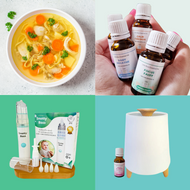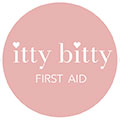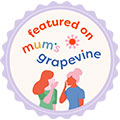Best Remedies for a Snotty Nose in Children
Posted by Emma, Snotty Noses HQ on 27th Aug 2024
A snotty nose is a common issue for many children, especially during the colder months or allergy season. While it’s often not a cause for serious concern, a runny nose can make your little one uncomfortable and irritable. Here are several effective remedies that can help alleviate symptoms and make your child feel better in no time

- Saline Nasal Spray or Drops
Saline nasal spray is a gentle, effective way to clear mucus from your child’s nasal passages. The saltwater solution thins the mucus, making it easier to remove. Use a few drops in each nostril, then gently suction out the mucus with a nasal aspirator. This method is especially useful for babies and toddlers who can’t blow their noses yet. - Humidifier - Cool Mist Vaporisers Recommended by Paediatricians
Dry air can worsen nasal congestion. Using a cool-mist humidifier in your child’s room adds moisture, preventing nasal passages from drying out. Ensure you clean the humidifier regularly to avoid mould and bacteria growth. - Warm Compress
A warm compress on the nose and forehead can relieve sinus pressure and soothe a snotty nose. Soak a clean cloth in warm water, wring it out, and gently place it on your child’s face. The warmth loosens mucus, easing breathing and discomfort. - Hydration
Keeping your child well-hydrated is crucial. Fluids thin the mucus, making it easier to expel. Offer water, clear broths, or warm herbal teas. If your child is reluctant to drink, try ice lollies made from natural juice, which can also soothe a sore throat. - Elevate Their Head
Elevating your child’s head while they sleep can reduce nasal congestion. For infants, slightly raise the crib mattress by placing a towel or wedge underneath. Older children can use an extra pillow. - Essential Oils
Essential oils like eucalyptus and peppermint can help clear a stuffy nose. Add a few drops to a diffuser in your child’s room or use a chest rub formulated for children. Always dilute essential oils properly and consult a healthcare provider before use on young children. - Nasal Aspirator
A nasal aspirator is essential for parents dealing with a snotty nose, especially in babies. It allows gentle suction of mucus from your child’s nostrils, providing quick relief. Use the aspirator gently to avoid irritation. - Chicken Soup
Chicken soup can ease congestion and provide comfort. The warm broth helps, and the vitamins and nutrients boost your child’s immune system. - Probiotics
Probiotics support the immune system and can reduce the duration and severity of colds. Include probiotic-rich foods like yoghurt in your child’s diet, or consult your paediatrician about a suitable supplement. - Rest
Rest is vital for recovery. Encourage your child to relax and sleep, as this helps their body fight off infection. Create a cosy environment with favourite blankets and toys to make resting more appealing.
When to See a Doctor...
A snotty nose is usually not a concern, but seek medical advice if your child has a high fever, difficulty breathing, or a runny nose lasting more than two weeks. Consult your paediatrician if needed.
A snotty nose can be uncomfortable, but these remedies can help your child feel better quickly. Keep them hydrated, use gentle methods to clear their nasal passages, and ensure they get plenty of rest. If in doubt, always reach out to your healthcare provider for guidance.
Explore More at Snotty Noses
At Snotty Noses, we offer products designed to keep your child comfortable and healthy, from nasal aspirators to humidifiers. Visit our website to find the perfect solutions for your little one's needs.
Disclaimer: We are not doctors or healthcare professionals or aromatherapists. Our products are offered for sale with general use guidelines provided by the manufacturer. Should any sensitivity to our products occur, please discontinue use. Our products are not intended to diagnose, treat, and/or take the place of medical treatment prescribed by a doctor or medical professional.
















